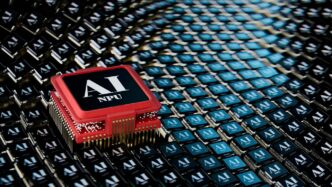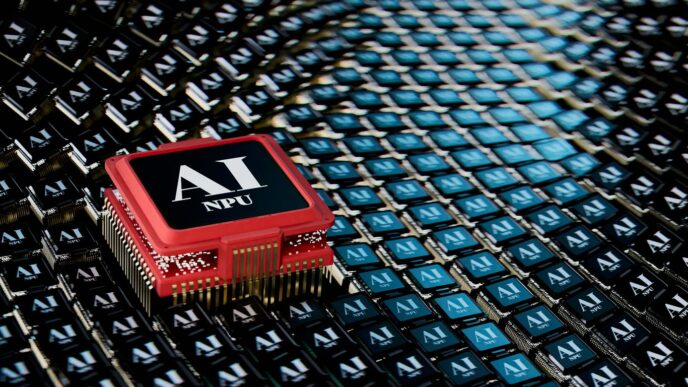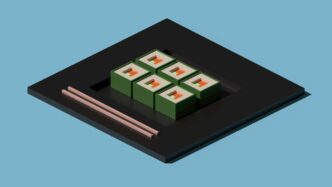China’s progress in quantum computing is really something else. It feels like every few months, there’s a new announcement about a faster processor or a more secure communication system. They’ve got this big plan, aiming for major breakthroughs by 2030 and pouring billions into research. It’s not just theoretical stuff either; they’re building actual machines that are starting to rival what other countries have. This whole quantum computing in China story is definitely one to watch, especially with how it might change things like cybersecurity and even national security.
Key Takeaways
- China has a national strategy to become a leader in quantum science, with significant funding and a goal for major breakthroughs by 2030.
- Chinese researchers claim to have built quantum computers that are faster than Google’s Sycamore processor, like Jiuzhang 2.0 and Zuchongzhi 2.0.
- There are concerns that quantum computing could break current encryption methods like RSA, raising national security issues.
- China is actively developing quantum key distribution (QKD) networks, using both ground and satellite links, and exploring underwater applications.
- While the U.S. leads in some quantum patents, China is making rapid gains, especially in quantum communication, leading to U.S. export controls and a focus on protecting intellectual property.
China’s Ambitious Quantum Computing Roadmap
China isn’t just dipping its toes into quantum computing; it’s making some serious waves. The nation has laid out a pretty ambitious plan, aiming to be a major player in this cutting-edge field. Think of it as a national mission, with big goals set for around 2030.
National Quantum Communications Infrastructure Expansion
One of the big pushes is to build out a massive quantum communications network. This isn’t just about connecting a few labs; it’s about creating a secure, nationwide system. They’re linking up cities with fiber optics and even using satellites to bridge vast distances. It’s a huge undertaking, connecting places like Beijing, Hefei, Jinan, and Shanghai, and even reaching out to observatories far from the capital. They’re also looking into some really interesting areas, like underwater quantum communications, which could be a game-changer for submarines. It’s all part of a strategy to create a multi-domain quantum network, and they’re even exploring partnerships with countries like Austria and Canada to expand this reach.
Significant Breakthroughs by 2030
The 2030 target is a big one. It’s not just about having the hardware; it’s about achieving practical, significant breakthroughs. This includes developing more robust quantum computing systems and creating practical quantum simulators. The idea is to move beyond theoretical concepts and start seeing real-world applications. This national push is backed by substantial government funding, with billions earmarked for research and development.
Investment in Quantum Research and Development
Speaking of funding, China is putting its money where its mouth is. The government has pledged billions of dollars specifically for quantum R&D, and that’s just the publicly disclosed amount. There are likely classified programs too, meaning the actual investment could be even higher. This significant financial backing is fueling progress across various quantum disciplines, from computing to communications. It shows a clear commitment to leading the charge in quantum sciences, aiming to surpass other global leaders in this technological race. It’s clear they see quantum technology as a key area for future innovation and national security, much like advancements in areas like AI and robotics [f39c].
Groundbreaking Quantum Hardware Achievements
China’s progress in quantum hardware is really something to watch. They’ve been pushing the boundaries, and it’s not just about building bigger machines, but smarter ones too.
Jiuzhang 2.0 Performance Metrics
The Jiuzhang 2.0, for instance, is a photonic quantum computer. Think of it as using light particles, or photons, to do the computing. This approach has some neat advantages. For starters, it can operate at room temperature, which is a big deal because it cuts down on the need for those super-cold, complex cooling systems that other quantum computers require. Plus, the components are relatively simple. This makes it easier to build and potentially scale up. The system is designed to be programmable and can run different algorithms. It’s a step towards making quantum computing more accessible and practical.
Zuchongzhi 2.0 Capabilities
Then there’s the Zuchongzhi 2.0. This machine uses superconducting qubits, which are a bit different from the photons in Jiuzhang. Superconducting qubits are made from tiny circuits that operate at extremely low temperatures. The Zuchongzhi 2.0 is a significant step forward, showcasing China’s ability to build more complex quantum systems. It’s part of a broader effort to develop machines that can tackle problems far beyond the reach of even the most powerful classical supercomputers. The goal is to create systems that are not only powerful but also reliable enough for real-world applications.
Advancements Beyond Google’s Sycamore
When we talk about advancements beyond systems like Google’s Sycamore, it’s about pushing the limits of qubit count and quality. Sycamore was a big deal when it came out, showing what was possible with 54 qubits. But the field moves fast. China’s efforts, like with Zuchongzhi 2.0, are aiming to increase qubit numbers and improve their stability and connectivity. This is where the real challenge lies – making sure these qubits work together effectively and without too many errors. It’s a bit like trying to get a choir to sing perfectly in tune; each voice needs to be clear and in harmony with the others. The race is on to build machines that are not just theoretically powerful but practically useful, and China is definitely in the running. Building these advanced systems is a key part of their national strategy, aiming to secure a leading position in this transformative technology. You can see how different countries are approaching this, with the US also making strides in quantum technology through companies like Google.
Quantum’s Impact on Cryptography and Security
So, quantum computing is a pretty big deal, and it’s got everyone talking about how it might mess with our current online security. Think about it: the same power that could solve super complex problems could also be used to break the codes that keep our online banking and emails safe. It’s a bit like having a master key that can open any lock, and that’s got a lot of people worried.
Potential to Break RSA Encryption
Right now, a lot of our digital security relies on things like RSA encryption. It’s supposed to be really hard for regular computers to crack. We’re talking about needing billions of years to break some of today’s encryption standards. But a working quantum computer, theoretically, could do it in just a couple of minutes. That’s a massive difference. There was even a claim in late 2023 from some Chinese researchers who said they found a way to break RSA encryption using a 372-qubit computer. Now, this paper hasn’t been reviewed by other scientists yet, and many experts are a bit skeptical, thinking you’d need way more qubits. Still, it shows that people are actively trying to figure this out, and the possibility of a breakthrough is definitely on the horizon.
Concerns Over Unverified Claims
It’s important to be a little cautious about some of the claims out there. Like that one about breaking RSA encryption with fewer qubits than expected. While it’s exciting to think about these advancements, we need to wait for proper scientific review. The National Institute of Standards and Technology (NIST) is working on new encryption methods that are supposed to be resistant to quantum attacks. They’ve picked out a few algorithms, like Crystals-Kyber and Crystals-Dilithium, which should be finalized soon. These are designed to protect our digital information in this new, post-quantum world.
Implications for National Security
This whole quantum thing has some serious national security implications. If a country, or even a sophisticated hacker group, could break current encryption, they could potentially access a lot of sensitive data. We’re talking about things like financial records, government secrets, and personal information. There’s a concern that data being stolen now could be stored away and then decrypted later when quantum computers become powerful enough. China, for example, is investing heavily in quantum technology, and some worry this could be used to boost their surveillance capabilities or even for military applications, though some experts think that’s not an immediate threat. It’s a complex situation where technological advancement meets global security concerns.
China’s Global Quantum Race and Geopolitical Stance
It feels like every week there’s some new announcement about quantum computing, and China is definitely a big player in this whole race. They’ve made it pretty clear they want to be at the forefront of this technology, not just for science, but for national security and economic power too. It’s a bit like a technological arms race, and the US is watching closely.
China’s ambition is to surpass the United States in developing quantum sciences and all technological innovations. They’ve even put a pretty hefty price tag on it, with billions earmarked for quantum research and development in their five-year plans. This isn’t just about building bigger quantum computers; it’s about creating entire quantum communication networks, both on the ground and even through satellites. They launched the Micius satellite back in 2016, which was a huge step in testing quantum key distribution over long distances, even managing an intercontinental video call secured with quantum keys. It’s pretty wild to think about how this could change secure communication.
Here’s a look at some of their reported advancements:
- Jiuzhang 2.0: This machine, with 113 qubits, is said to perform calculations in a millisecond that would take a supercomputer trillions of years. That’s a mind-boggling speed difference.
- Zuchongzhi 2.0: A 66-qubit system, it’s reportedly capable of handling calculations a million times more complex than Google’s Sycamore processor. They’re really pushing the boundaries here.
Of course, with these advancements come concerns. There have been claims about breaking current encryption methods, like RSA, using a 372-qubit computer. While some experts are a bit skeptical and say the papers aren’t peer-reviewed yet, the possibility itself is a big deal. If quantum computers can break current encryption, it could put a lot of sensitive data at risk. This is why countries like the US are pushing for post-quantum encryption standards. It’s a complex situation, and it’s not entirely clear how much of the hype is real versus actual, deployable technology. Some think China might be using these announcements to signal strength, maybe even to make rivals a bit nervous. It’s a delicate balance between showcasing progress and potentially causing alarm. The race is definitely on, and it’s impacting international relations and trade, with export controls being put in place on certain technologies. It’s also interesting to see how they are exploring new frontiers, like underwater quantum communications, which sounds like something out of science fiction but could be a reality soon. This kind of innovation could lead to more powerful, faster computers, connecting to networks like fiber-optic ones, which is a significant step forward in photonic technology [b369].
It’s a fast-moving field, and keeping up with all the developments, especially when they have geopolitical implications, is a challenge. China’s push in quantum technology is certainly reshaping the global tech landscape.
Quantum Key Distribution: A Multi-Domain Strategy

So, China’s really pushing the envelope with quantum key distribution, or QKD. It’s not just about one type of communication; they’re looking at it from all angles. Think ground networks, satellites, and even underwater. The idea is to create these super-secure communication channels using the weird rules of quantum mechanics.
The core principle is that any attempt to eavesdrop on a quantum communication will inevitably disturb it, leaving a trace that the legitimate users can detect. This makes QKD a pretty big deal for data security, offering a way to shield sensitive information. They’re building out these networks using fiber optics and free-space channels, sending tiny light signals that carry the quantum keys. If someone tries to tap in, the signal gets messed up, and the system knows something’s up. Then, they can just discard that compromised key and generate a new one. It’s like having a secret handshake that changes every time someone tries to listen in.
Here’s a look at their multi-domain approach:
- Ground and Satellite Networks: China launched the Micius satellite back in 2016, which was a huge step. It allowed them to test QKD between the satellite and ground stations, covering distances way beyond what fiber optics can handle. They even managed an intercontinental QKD call between China and Austria using it. This space-based QKD is a big part of their plan to create a global quantum communication network. They’re also expanding terrestrial fiber networks for QKD, aiming for widespread secure communication within the country.
- Underwater Quantum Communications: This is a bit more cutting-edge, but the idea is to extend QKD to underwater environments. This is important for naval operations and secure communication with submarines. Developing reliable underwater QKD is a significant technical challenge, but it’s an area China is actively exploring.
- International Collaboration in QKD: While there’s a lot of competition, China has also engaged in international collaborations. For instance, the Micius satellite project involved cooperation with Austrian scientists. These partnerships can help advance the technology faster, though they also raise questions about technology transfer and geopolitical implications. It’s a complex dance of cooperation and competition on the global stage, especially when you consider how this tech could be used for national security purposes.
There’s definitely a lot of buzz around QKD, and some experts wonder if the hype matches the reality. Still, China’s investment and progress in this area are undeniable, positioning them as a major player in the global quantum race.
Patents and Intellectual Property in Quantum Technology
When we talk about quantum computing, it’s not just about the science and the machines. There’s a whole other layer to consider: who owns the ideas and the inventions? This is where patents and intellectual property (IP) come into play, and it’s a pretty big deal in the race to build better quantum computers.
Leading in Quantum Communication Patents
China has been making some serious moves in quantum communications, and you can see it in the patent numbers. They’ve filed a lot of patents related to quantum key distribution (QKD) and quantum networks. It seems like they’re really focused on building out the infrastructure for secure quantum communication. This isn’t just about having the tech; it’s about protecting those inventions so others can’t just copy them. It’s a way to stake a claim in this new technological territory.
Export Controls and Blacklisting
Because quantum technology is seen as so important, especially for national security, there’s a lot of talk about export controls. Countries are getting a bit nervous about sensitive quantum tech falling into the wrong hands. You might have heard about certain Chinese companies being put on export blacklists by the US. This is all part of that bigger picture – trying to control who gets access to these advanced technologies. It makes it harder for companies to get the parts or software they need, and it definitely complicates international business.
Protecting Quantum Intellectual Property
So, what does all this mean for companies and researchers working in quantum computing? It means they really need to think about their IP. It’s not enough to just invent something cool; you have to figure out how to protect it.
Here’s a look at some key aspects:
- Strategic Filing: Companies are filing patents not just for the core quantum computing hardware, but also for the algorithms, software, and even specific applications. It’s about building a strong portfolio.
- Collaboration Challenges: Often, quantum research involves teams from universities, companies, and even governments. Figuring out who owns what when multiple groups work together can get complicated. Clear agreements are super important here.
- Global Landscape: Patent laws are different everywhere. What’s protected in one country might not be in another. This makes it tricky for companies operating internationally. They have to keep track of patent filings and laws in many different places.
Ultimately, getting a patent is like getting a ticket to the future. It’s a way to ensure that the hard work and innovation in quantum computing get recognized and rewarded, and it plays a big part in how this technology develops globally.
Challenges and Future Directions in Quantum Computing
So, where does quantum computing go from here? It’s not exactly a smooth ride, you know. There are some pretty big hurdles to clear before we’re all using quantum computers to, I don’t know, sort our laundry.
Maintaining Quantum States
One of the biggest headaches is keeping these delicate quantum states, called qubits, stable. They’re super sensitive to their surroundings. Think of it like trying to balance a pencil on its tip – the slightest nudge can knock it over. Scientists are working on ways to shield these qubits from noise and interference. It’s a bit like building a super-quiet, super-still room for them to do their work.
Reducing Quantum Noise
This ties right into keeping things stable. Quantum noise is basically unwanted signals that mess with the qubits. It can come from heat, vibrations, or even stray electromagnetic fields. Reducing this noise is key to getting accurate results. Researchers are exploring different materials and cooling techniques to minimize these disturbances. It’s a constant battle to get the signal clear from the static.
Scaling Quantum Technology
Right now, most quantum computers are pretty small, with a limited number of qubits. To tackle really complex problems, we need a lot more. Scaling up means building systems with thousands, or even millions, of qubits. This isn’t just about making more qubits; it’s about making them work together reliably. It’s a bit like trying to build a massive, intricate Lego castle where every single brick has to be perfectly placed and connected.
Here’s a quick look at some of the challenges:
- Decoherence: Qubits losing their quantum properties due to interaction with the environment.
- Error Correction: Developing methods to detect and fix errors that inevitably occur.
- Connectivity: Ensuring qubits can interact with each other efficiently within a larger system.
Getting these things right is what will determine how quickly quantum computing moves from the lab to real-world applications. It’s a marathon, not a sprint, and the race is definitely on to see who can build the most powerful and stable quantum machines. The progress we’ve seen so far is impressive, but there’s still a long way to go before we see the full impact of this technology, which could reshape everything from medicine to materials science.
Looking Ahead
So, where does all this leave us? China’s push into quantum computing is pretty serious, no doubt about it. They’ve put a lot of money into it and are making some big claims about their machines, even saying they’re faster than what Google has. It’s clear they want to be a major player, maybe even the top dog, in this whole quantum tech race. This isn’t just about faster computers, though; it’s also about national security and how they might use this tech for things like better surveillance or even in warfare. While some of their claims are still being looked at closely by experts, the pace of development is undeniable. It’s a complex picture, with lots of potential benefits but also some real concerns about how this technology could be used. The world is watching to see how this all plays out, and it’s definitely a space to keep an eye on as things continue to change so quickly.
Frequently Asked Questions
What is China’s main goal with quantum computing?
China wants to be the best in the world at quantum technology. Their leader, Xi Jinping, hopes to get ahead of the United States in areas like quantum science, artificial intelligence, and new ways of using computers for things like security and even in warfare. They’ve put a lot of money into this, planning to spend billions to make big steps forward by the year 2030.
What are some of China’s big achievements in quantum computers?
China has built quantum computers like Jiuzhang 2.0 and Zuchongzhi 2.0. They say these machines are faster than Google’s quantum computer. For example, Jiuzhang 2.0 can do a calculation in a blink of an eye that would take a normal supercomputer trillions of years. While they’re not yet better than all other countries’ biggest computers, they are making rapid progress.
How could quantum computing change online security?
Quantum computers could become powerful enough to break the codes that keep our online information safe today, like the ones used for banking and private messages. This is a big worry because sensitive data could be stolen. Countries are working on new types of security, called post-quantum encryption, to protect against this future threat.
Is China’s quantum progress a concern for other countries?
Yes, many countries, especially the United States, are watching China’s advances closely. They worry that China might use quantum technology for military purposes, like making better spy tools or communication systems. Because of this, some countries have put limits on selling certain technologies to China.
What is Quantum Key Distribution (QKD)?
QKD is a special way to send secret keys for locking and unlocking information using the rules of quantum physics. It’s considered very secure. China is building a large network using fiber optic cables and even satellites to send these quantum keys, aiming for super-secure communication.
What are the main difficulties in building better quantum computers?
Building quantum computers is tricky! One big challenge is keeping the tiny quantum bits (qubits) stable and preventing them from losing their special quantum properties. Another problem is ‘noise,’ which is like interference that messes up the calculations. Scientists are working hard to make these machines more reliable and bigger.














